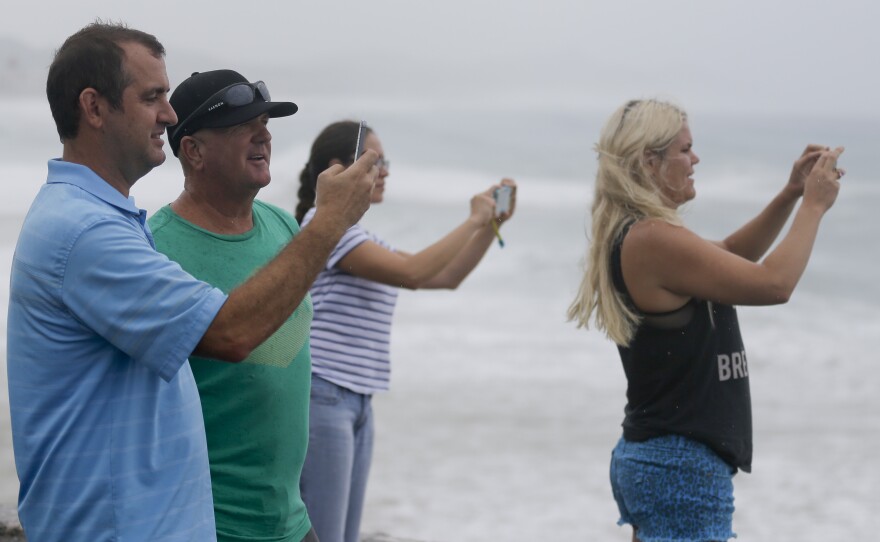
Odile, the strongest hurricane on record to make landfall on Mexico's Baja California, slammed into the tourist resort of Cabo San Lucas with winds up to 115 mph and is now moving up the massive peninsula.
"We haven't seen one get so close and with the possibility of impact, and of such a nature," Wenceslao Petit, head of emergency services in Los Cabos, was quoted by Reuters as saying of the Category 3 hurricane. "There aren't words for this."
The National Hurricane Center says Odile made landfall at 10:45 p.m. MDT (12:45 a.m. ET) near Cabo San Lucas with maximum winds of 125 mph.
The Associated Press says, "The area is home to gleaming megaresorts, tiny fishing communities and low-lying neighborhoods of flimsy homes. Forecasters predicted a dangerous storm surge with large waves as well as drenching rains capable of causing landslides and flash floods."
In its latest statement, the National Hurricane Center says Odile "is moving north-northwestward at [16 mph]. The cyclone is forecast to move northwestward to north-northwestward around the western portion of a mid-level ridge over the southern United States during the next couple of days."
According to The Weather Channel: "Odile has benefited from low wind shear and warm water. Odile strengthened quickly in that environment Saturday and Saturday night, going from a tropical storm Friday night to a Category 4 hurricane on the Saffir-Simpson Hurricane Wind Scale by Sunday morning."
Tourists stranded in shelter in Cabo San Lucas were tweeting photos and comments throughout the ordeal:
Reuters, quoting Mexican officials, says at least 26,000 foreign tourists and 4,000 Mexicans were in the region.
According to Reuters:
"Ahead of the storm's approach, people in Cabo San Lucas had rushed to board up windows, clear beach furniture and remove fishing boats and yachts from the water into dry docks.
"While other beaches in Mexico were packed with tourists during the long weekend leading to Tuesday's Independence Day holiday, the resorts of Los Cabos are mostly visited by Americans and are in low season."
Copyright 2014 NPR. To see more, visit http://www.npr.org/.






